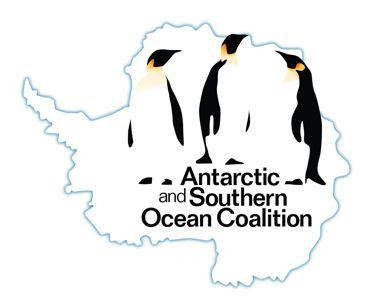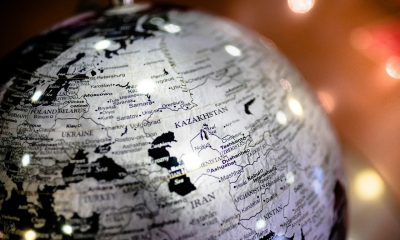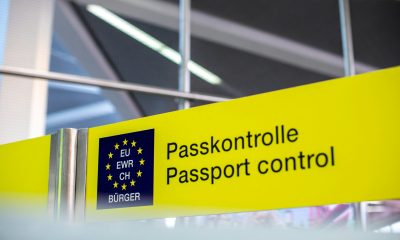Antarktiese
Wetenskaplikes en kundiges herdenk die 30ste herdenking van die Madrid -protokol teen die Antarktiese verdrag

 |
 |

Today (4 October), ministers, leading scientists and experts from around the world are meeting at the Archeological Museum of Madrid to commemorate the 30th anniversary of the signing of the Madrid Protocol to the Antarctic Treaty. In 1991, this Protocol, hailed as a significant achievement for environmental governance, declared the full protection of the entire Antarctic continent from exploitation.
High-level Dialogues will discuss the different challenges that Antarctica is facing today. This will be followed by a Ministerial meeting, where hopefully commitments will be made by countries to new ground-breaking action on how to deal with these challenges in the coming 30 years.
[A petition signed by almost 1.5 million people worldwide calling on world leaders to significantly increase the protection of Antarctica’s waters will also be handed over to the Spanish President of the Government by NGO partners at the Antarctic and Southern Ocean Coalition (ASOC), Avaaz, Blue Nature Alliance, Ocean Unite, OnlyOne, SeaLegacy, The Pew Charitable Trusts en We Move Europe.]
"This event is a unique opportunity to celebrate this Treaty as a strong symbol of multilateralism and good governance, and to show the world that this multilateral action is urgently needed again now that climate change is accelerating and is threatening this fragile wilderness”Gesê Claire Christian, Executive Director of Antarctic and Southern Ocean Coalition.
Antarctica is undergoing huge changes due to the climate crisis- with melting ice and temperatures rising faster than anywhere else on Earth. While the continent has been protected from exploitation, the waters that surround it are still open to commercial fishing which has been expanding in recent decades, threatening large swathes of vulnerable ecosystems and important wildlife habitats.
An international body that falls under the Antarctic Treaty called CCAMLR (Commission for the Conservation of Antarctic Marine Living Resources) regulates fisheries and is responsible for conserving Antarctica’s marine life. It is currently considering the designation of three new large-scale protected areas in the Weddell Sea, East Antarctica en die Antarktiese Skiereiland, which would help these areas adapt and build resilience to the unprecedented changes happening to marine ecosystems by the climate crisis.
This additional protection would safeguard almost an extra 4 million km2 of ocean from human activities, providing a safe haven for amazing wildlife, such as whales, seals and penguins in a further 1% of the global ocean.
All CCAMLR members, including European countries (Belgium, France, Germany, Italy, Netherlands Poland, Spain, and Sweden) and the European Union are in support of these new areas, with the exception of Russia and China.
"Leaders meeting here in Madrid, including Spain, must agree to use all their diplomatic weight to bring Russia and China on board with this historic biodiversity and climate action this year”. declared Pascal Lamy, President of the Paris Peace Forum,Co-head of the Antarctica2020 Champions Group.
"We need to act now to protect Antarctica’s ocean. The region cannot afford yet another lost year of inaction”Afgesluit Geneviève Pons, Director General of “Europe Jacques Delors”, Co-head of the Antarctica2020 Champions Group.
To register at the event, please send your name and ID number at the following address: [e-pos beskerm]
EINDE
Notas vir redakteurs
Antarctica2020 is an initiative bringing together leaders and influential voices from the world of politics, science, sport and media that is advocating high-level support from world leaders for the protection of these areas. This initiative, together with NGO partners at the Antarctic and Southern Ocean Coalition (ASOC), Avaaz, Blue Nature Alliance, Ocean Unite, OnlyOne, SeaLegacy, The Pew Charitable Trusts en Ons verhuis Europa will deliver to the Spanish President of the Government the #CallonCCAMLR petition that has been signed by almost 1.5 million people worldwide calling for protection of Antarctica’s waters this year.
The Antarctic Treaty was agreed in 1959 and came into force in 1961, it has 54 parties https://en.wikipedia.org/wiki/Antarctic_Treaty_System.
Antarctica plays a critical role in regulating the global climate and through its extremely rich biodiversity and strong circumpolar current supplies nutrients to the rest of the global ocean. Covering 30% of the ocean’s surface, the Southern Ocean is a major buffer against climate change, absorbing as much as 75 % of the excess heat and 40 percent of global carbon dioxide (CO2) emissions that have been taken up by the global ocean.
This celebratory meeting will take place a few days ahead of the 40thannual meeting of CCAMLR and the COP15 of the Convention on Biological Diversity that are both starting on the 11th The meeting is expected to adopt the Madrid Declaration, which will be an expression of the shared commitment to protect the biodiversity of this unique area of our planet.
CCAMLR: Die Kommissie vir die Bewaring van Antarktiese Lewende Hulpbronne (CCAMLR) is ingestel ingevolge die Antarktiese Verdragstelsel om die biodiversiteit van die Suidelike Oseaan te bewaar. CCAMLR is 'n konsensus-gebaseerde organisasie wat bestaan uit 26 lede, insluitend die EU en agt van sy lidstate. Die mandaat van CCAMLR sluit visserybestuur in, gebaseer op die ekosisteembenadering, die beskerming van die Antarktiese natuur en die skep van groot beskermde gebiede wat die see toelaat om die weerbaarheid teen klimaatsverandering te verhoog.
Deel hierdie artikel:
-

 Konflikte3 dae gelede
Konflikte3 dae geledeKasakstan tree in: Oorbrug die skeiding tussen Armenië en Azerbeidjan
-

 uitbreiding4 dae gelede
uitbreiding4 dae geledeEU onthou die optimisme van 20 jaar gelede, toe 10 lande aangesluit het
-

 Wet op digitale dienste5 dae gelede
Wet op digitale dienste5 dae geledeKommissie beweeg teen Meta oor moontlike oortredings van die Wet op Digitale Dienste
-

 Covid-193 dae gelede
Covid-193 dae geledeGevorderde beskerming teen biologiese middels: die Italiaanse sukses van ARES BBM - Bio Barrier Mask























